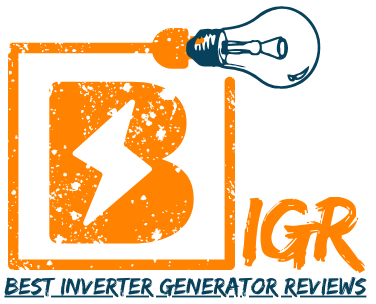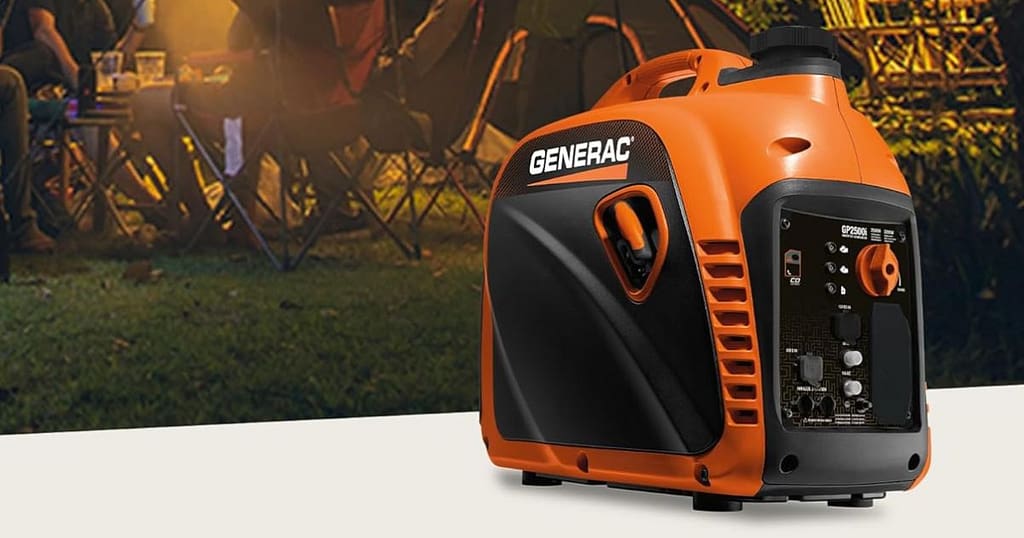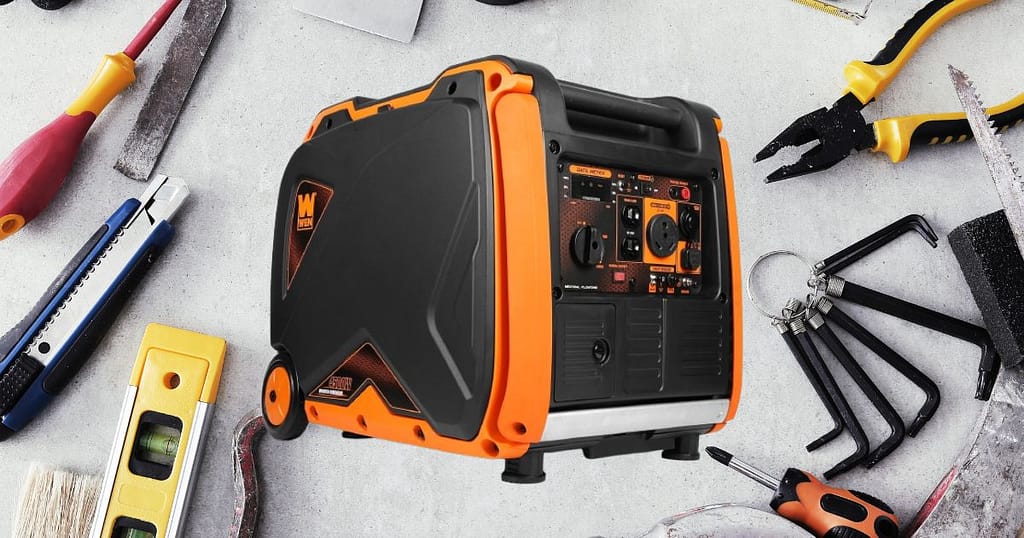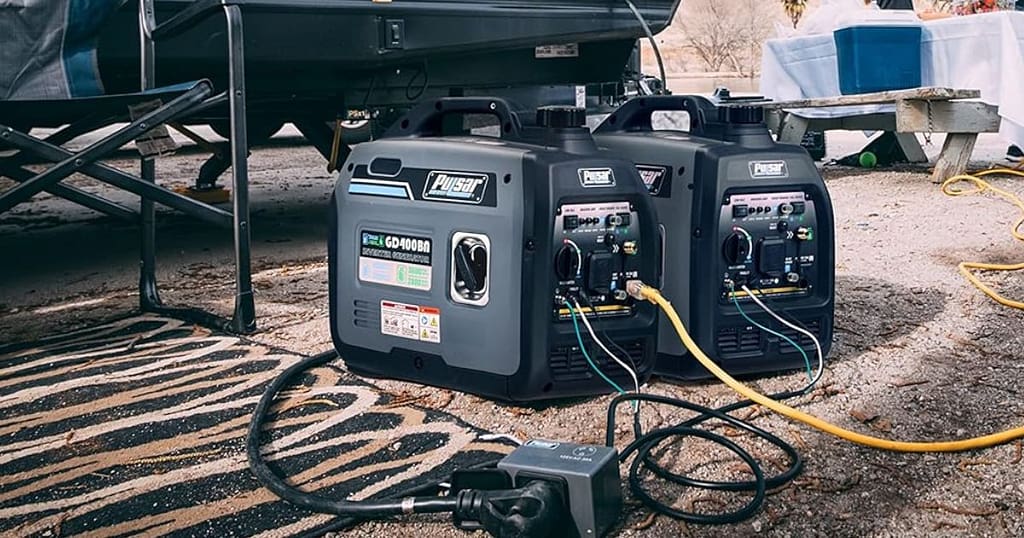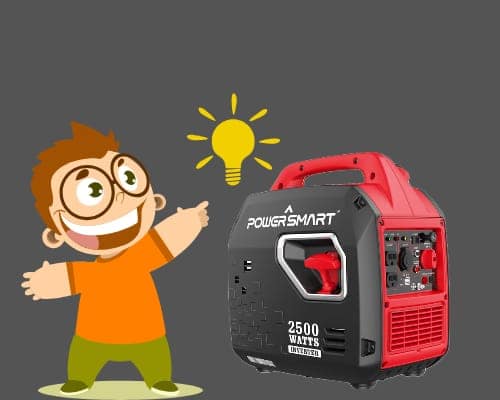
Power outages can happen unexpectedly, leaving you in the dark and without essential appliances. To ensure you’re prepared for such situations, investing in a generator is a wise decision. However, determining the right generator size for your home is crucial to ensure it can power all your necessities without overloading or underperforming. In this guide, we’ll walk you through the steps to help you find the perfect generator size for your specific needs.
What Size Generator Is Ideal for My House?
Understanding Your Power Requirements
Alright friends, with hurricane season in full swing I think it’s time we chat about something important – understanding your home’s power needs. You know how it is, the lights flicker a bit and we all get that sinking feeling of “uh oh, what if we lose power?” As the main breadwinner of my household, it’s my job to make sure my family is prepared in case of an outage. So a while back I did some research and number crunching to figure out what size generator we might need.
The first step is making a list of all the key things that need juice – we’re not talking about your phone charger or game console here, but the essentials like lights, fridge/freezer, and of course the trusty coffee maker! Go room to room and jot down anything you couldn’t live without if the power went out. It’s also a good idea to note things that run frequently like the HVAC system.
Once you have your list, the next step is finding the wattage information.
I know generator shopping can feel overwhelming since there are so many options out there. But if you take it step-by-step like we did – making a needs list, finding wattage info, then sizing up from there – it makes the process much more manageable. Don’t forget to consider your budget too. In the end, just focus on meeting your essential power needs and hopefully this guide helps you feel prepared for whatever Mother Nature throws our way! Let me know if you have any other generator questions.
Calculating Total Wattage
Alright, so now that you’ve made your list of essential appliances and have all the individual wattages, it’s time for a little math! Go ahead and add up that column of numbers – this will give you the total continuous wattage your generator needs to power everything simultaneously during an outage.
Now here’s an important thing to note – some appliances have what’s called a “startup surge”. This is a brief burst of extra power needed when first turning on things like the fridge, AC, or well pump. To account for startup surge, you’ll want to look at both the continuous running wattage and the maximum surge wattage listed.
For example, let’s say your fridge runs on 100 watts continuously but has a startup surge of 200 watts. In this case, you’d count the fridge as 200 watts toward your total, not just the 100 running watts. This is because when everything first kicks on after the power comes back, your generator needs to be able to handle those initial surge loads without getting overloaded.
It’s usually best to round your total wattage up to the nearest 500 or 1000 watts as well, just to give yourself a comfortable safety buffer. The last thing you want is your generator maxing out if multiple things start up at once!
So in summary – add up all the continuous running wattages, then account for startup surges by using the higher surge numbers where applicable. Round your grand total up to the nearest half or full kilowatt. This final number is what you’ll use to properly size your generator and ensure it can keep up with your home’s power demands.
Choosing the Right Generator Size
Now that we’ve calculated our total wattage needs, it’s time to start shopping for generators! As you may have noticed from your research, they come in a pretty wide range of sizes. But generally speaking, here are some guidelines on what capacity you’ll likely need:
If your total wattage is under 5,000, a small 3,000–5,000 watt generator should do the trick for basic essentials like lights, sump pump, small fridge. These are perfect for powering one room or small RV. Read what 5000 watt generator run.
Now if you factored in bigger items like a full size fridge, window AC unit, or well pump, you’re probably looking at 5,000-10,000 watt range. The mid-size generators are great for smaller homes, cabins, or powering multiple rooms.
Larger homes with multiple bathrooms, a whole-house generator backup, or just higher overall power needs might want to size up to 10,000 watts or more. These big boys can run a whole house comfortably.
Of course, don’t forget to leave yourself some buffer room too. It’s better to get slightly more capacity than squeezing to the minimum. And don’t forget to research fuel capacity – you don’t want to run out of gas mid-storm!
Hope this overview helps you zero in on the right generator horsepower for your power appetite.
Consider Fuel Type and Runtime
one other important factor to think about is fuel. Generators can run on gasoline, propane, or diesel – and they each have their pros and cons to weigh.
Gasoline is probably the most common since it’s readily available everywhere. But the downside is it does go bad after a few months so you’ll need to use stabilizer and cycle through your supply.
Propane is a great option if you have an existing tank, since it lasts a very long time without going bad like gas. The tanks are also exchangeable so you have a backup supply.
Diesel has the highest energy density so you’ll get the longest runtime per gallon compared to gas. But it may be harder to find locally in an emergency.
No matter the fuel, be sure to check the rated runtime at 25% load – that’ll tell you about how long it can run before refueling. For whole home backups, aim for 8 hours minimum so it can see you through the night if needed.
It’s also a good idea to have emergency fuel storage too, whether that’s extra gas cans, a propane cylinder, or diesel containers. The last thing you want is to run out of juice before the power comes back!
Take your specific needs and logistics into account. With some research you’re sure to find the ideal fuel type and generator match for your home.
Professional Guidance
You know, figuring out all this generator stuff can definitely feel like a lot to take in! Don’t feel bad if you’re feeling a little overwhelmed by wattages and fuel types – it’s a lot of new information to process.
That’s where bringing in an expert can really help. If you’re feeling unsure about assessing your home’s needs accurately or sizing things up right, I’d highly recommend talking to a pro.
An electrician can come check out your setup, take measurements, and give you their professional opinion on what size generator makes the most sense. They’ll know all the technical stuff like electrical codes too.
Generator dealers are also a great resource. Explain your situation and must-have appliances, and let them recommend some options tailored to you. Good ones will take the time to understand your priorities and budget.
It’s worth the investment to get that guidance, even if it’s just a one-time consultation fee. Better to spend a little now than end up with the wrong generator that doesn’t do the job when you need it most.
Peace of mind is priceless when disaster strikes. So if you’re feeling unsure, don’t hesitate to call in the backup! An expert second opinion could save you headaches down the line.
Final Verdict
Well, we’ve covered a lot when it comes to finding the right generator for your needs! Let me try to quickly recap the key things we discussed:
First thing – make a complete list of all the essential appliances and electronics that need juice during an outage. Note the wattage of each item so you can add it all up.
Once you’ve tallied the individual wattages, crunch the numbers to get your total continuous power needs. Don’t forget to account for startup surge watts too where applicable.
After getting that magic number, use the general sizing guidelines to pick a generator in the right kW range for your power appetite. Leave yourself some buffer room to avoid cutting it too close.
Beyond just capacity, also factor in important considerations like fuel type, runtime per tank, and storage space for extra fuel. These practical details are just as important.
If all the technical aspects have you feeling unsure, also don’t be afraid to consult an electrician or generator pro. They can inspect your setup and recommend the best option.
By following these steps, you can feel confident you’ve got a generator that will keep your essentials running strong no matter what gets thrown your way. And that peace of mind is so valuable, especially in stressful times.
I hope you all feel empowered to assess your needs and find the perfect portable powerhouse for your home!
Read our recommended guides:
